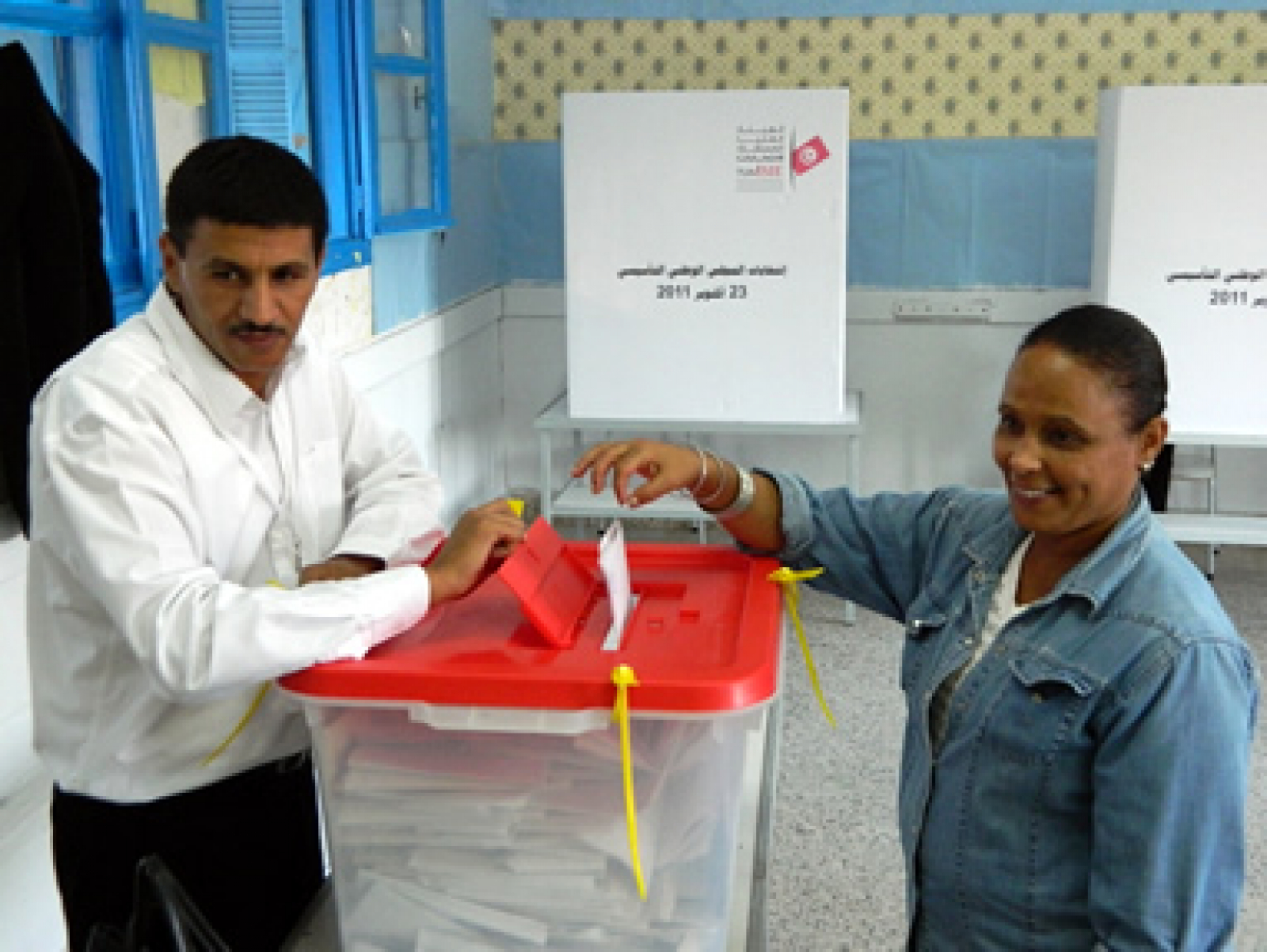
SHARE
Nearly a year after Tunisia’s nationwide protests led to the overthrow of President Zine El Abidine Ben Ali and inspired uprisings across the Arab world, Tunisians remain proud of their accomplishments and hold high expectations for their new government, according to recent focus group research conducted by NDI.
National Constituent Assembly (NCA) elections held Oct. 23 were a cathartic experience for citizens, who were able to choose their political leaders for the first time. Reactions to the election results – the moderate Islamist party Ennahda won 42 percent of seats – vary widely, but there is broad recognition that elections were an important political landmark. Participation in the elections reinforced commitment to the goals of the revolution and citizens now hope to play a role monitoring the performance of elected leaders.
The Institute has conducted focus group research throughout Tunisia since March 2011 to provide political and civic leaders with timely and objective information about citizens’ priorities and attitudes during the political transition. The most recent round, conducted in December, explored attitudes toward newly-elected leadership and post-election expectations for political, social and economic development. Here are some key findings:
- Tunisians continue to view dignity – political, social and economic – as the primary goal of the revolution. New freedoms and increased political pluralism have been key achievements thus far toward that goal.
- Citizens understand that political progress will be slow and consider it largely on track. They lack a similar patience for economic and social improvements. A rise in unemployment and the cost of living are consistently identified as concerns that the new government must address immediately, with youth feeling most affected by a lack of job opportunities. Security is another issue that citizens expect the new government to address immediately.
- Tunisians were motivated to vote in October by an overwhelming sense of civic duty. Confidence in the election administration was high, despite anticipated and observed flaws. Voters cited a range of influences on their decisions at the ballot box, including religion, regional loyalty and party platform.
- Understanding of democracy has expanded beyond freedom of expression to include individual responsibilities, like voting and accountability for lawmakers. Although they express interest in remaining politically active, citizens lack clear avenues to stay engaged between elections. Women encounter the most difficulty in this regard and often express the view that they have turned their rights over to elected officials to make decisions on their behalf.
- Citizens consider the newly-elected NCA – whose mandate is still being defined – responsible for both drafting the country’s new constitution and creating jobs. Tunisians give equal importance to these two priorities. Expectations regarding the constitution-drafting process are varied, with strong support for a referendum on a draft constitution. For the first time, Tunisian citizens have high expectations for transparency and responsiveness to constituent needs, and citizens point with concern to the lack of party outreach since the elections.
Research and production of this report was made possible with funding from the State Department’s Middle East Partnership Initiative (MEPI).
Read more:
- Read the focus group report (available in English and Arabic)»
- Focus groups in Tunisia reveal young people's hopes for democratic transition»
- Opinion research shows Tunisians concerned about the future»
- Tunisians want politicians to address jobs, security as first democratic elections approach»
Published Jan. 26, 2012


